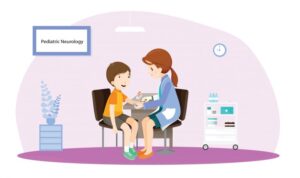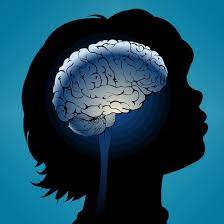Pediatric Neurology
Overview
The central nervous system (CNS)—brain and spinal cord—is a workhorse. It allows you to stay balanced in your chair, move your eyes across this sentence, and understand the words you’re reading. It can also tell you that you’re chilly and need a sweater, alert you to the smell of something burning, or help you catch a glass before it falls to the floor.
That’s why your child’s doctor is careful to see if the CNS may be involved if your child is having symptoms like headaches or changes in her behavior, cognition, or motor skills, or if she’s having changes in how she sees, hears, tastes, smells, or responds to tactile sensations.In any of these cases—or any time her doctor thinks the brain, spinal cord, nerves, or muscles may be affected—we may recommend a neurological exam.

Symptoms
If your child’s nervous system isn’t working properly, it can cause delays in her normal development and functioning. Early detection means that we have a better chance of identifying the cause, quickly treating her, and decreasing the chance that she’ll have long-term complications.
Your child’s doctor may request a neurological exam if your child:
- complains of symptoms including:
- headaches
- blurry vision
- fatigue
- fever of unknown cause
- change in balance or coordination
- numbness or tingling in the arms or legs
- decrease in movement of the arms or legs
- tremor
- has had an injury to her head, neck or back
- is experiencing a change in behavior, balance or coordination
- has any type of birth defect to her head or spine
- is currently being treated for a disease or condition
Neurological exams may also be performed during a routine physical exam, either right after birth or later in childhood or adolescence, in order to investigate possible problems or rule something out.
Treatments
Neurological exams may also be performed during a routine physical exam, either right after birth, or later in childhood or adolescence, in order to investigate possible problems or rule something out.
Where is the exam performed?
They’re done right in a doctor’s office, usually by a neurologist. If your child is in the hospital being treated for something else, it can often be done in her room, too.
How long does the exam take?
The first thing the doctor will do is talk to you and your child about her symptoms in order to get a good idea of which areas to concentrate on. After that part, the actual exam takes about 30 minutes.
What happens during a neurological exam?
Our pediatric neurologists talk to you and your child and take your child’s medical history. Based on what we learn, we form theories about what may be causing the symptoms. Then, we perform a series of “tests” that let us do two things: gain more information about how your child’s central nervous system is functioning, and test the theories we’ve made from the interview.


